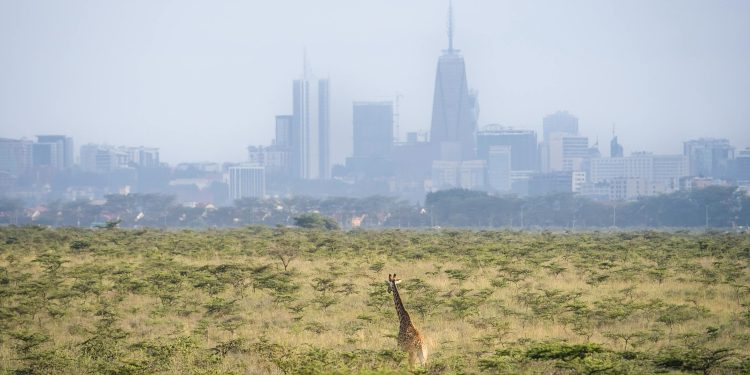As a Kenyan living abroad, investing in real estate in Kenya can be a way to build wealth and stay connected with home.
The real estate market in Kenya is diverse, offering various investment goals and risk appetites. Understanding these will help you make informed decisions about where to allocate your resources.
Here are five key areas of real estate investment:
In this article
1. Residential Real Estate: Building a Steady Income Stream
Residential real estate involves purchasing properties such as single-family homes, apartments, or townhouses. This sector is often favored for its stability and potential for long-term appreciation.
Imagine, a Kenyan living in the U.S, decides to invest in an apartment in Nairobi’s Kileleshwa neighborhood. Known for its demand among renters due to its proximity to major business districts and amenities, Kileleshwa offers a solid rental market. The property could potentially provides consistent rental income and the apartment’s value may appreciate as the area continues to develop.
While residential properties can offer reliable income, it is essential to research local rental demand, property management costs, and neighborhood growth prospects. High-demand areas like Lavington, Kilimani, and Riverside are typically strong choices for steady rental returns.
2. Commercial Real Estate: Higher Returns with Business Demand
Commercial real estate includes properties such as office buildings, retail spaces, and warehouses. These investments often offer higher returns compared to residential properties due to the business demand they attract.
A Kenyan expatriate living in the UK, invests in an office building in Westlands, Nairobi. This area is a significant commercial hub, home to local and multinational businesses. The demand for office space in the Westlands may provide higher rental yields and potential property appreciation as the commercial activity in the area grows.
Investing in commercial real estate requires a larger capital outlay and involves more extensive management. It is to evaluate the local business environment, tenant demand, and economic conditions. Key areas such as Upper Hill, Westlands, and aren are notable for their commercial potential.
3. Land: Future Development and Appreciation Potential
Investing in land offers flexibility and the potential for significant long-term appreciation. Land can be used for future development, agricultural purposes, or sold when its value increases.
A Kenyan living in Australia, purchases a plot of land in Kitengela. At the time of purchase, Kitengela is emerging as a developing area. Due to ongoing infrastructure projects and residential developments, land value may increase over the years, providing a substantial return on her investment.
While land investments can offer high returns, they come with risks such as zoning regulations and development delays. It is important to research the area’s growth potential, infrastructure plans, and local regulations. Areas near urban growth corridors, such as Athi River or Konza City, often present promising opportunities.
4. Real Estate Investment Trusts (REITs): A Passive Investment Option
Real Estate Investment Trusts (REITs) allow investors to pool their money into a diversified portfolio of properties, offering a more passive way to invest in real estate.
John, living in Canada, chooses to invest in an I-REIT that focuses on commercial properties in Nairobi. This REIT holds a portfolio of income-generating assets, such as shopping malls and office buildings. John benefits from dividend payments based on the REIT’s profits without the need to manage properties directly.
REITs provide a way to invest in real estate with lower capital requirements and less management. The performance of REITs depends on market conditions and the underlying assets’ performance. Kenyan REITs, regulated by the Capital Markets Authority (CMA), offer transparency and are a viable option for those seeking passive income.
5. Vacation Rentals: Capitalizing on Kenya’s Tourism
Vacation rentals cater to tourists and can offer higher returns compared to traditional rental properties. With Kenya’s growing tourism sector, investing in short-term rental properties in popular destinations can be lucrative.
Esther, a Kenyan living in Dubai, invests in a vacation home in Diani, a renowned beach destination. During peak tourist seasons, her property is frequently rented out, generating significant income. The vacation rental market in Diani is strong due to its appeal to both international tourists and local visitors.
Vacation rentals can yield high returns but require effective management and prime locations. It is essential to consider factors like tourist demand, property maintenance, and local regulations. Areas such as Malindi, Naivasha, and Nanyuki are also attractive for vacation rental investments.
Conclusion
The Kenyan real estate market offers a variety of investment options, from residential and commercial properties to land, REITs, and vacation rentals. By understanding the different sub-branches and considering illustrative examples, Kenyan diaspora investors can make well-informed decisions that align with their financial goals.
Each investment type comes with its unique set of risks and benefits. Conduct thorough research, seek advice from local experts, and choose investments that suit your objectives and risk tolerance. With careful planning and strategic investment, real estate in Kenya can be a rewarding avenue for building wealth and staying connected with your roots.




